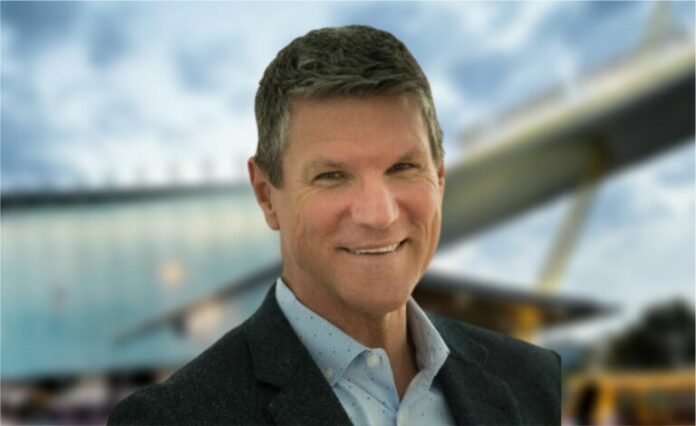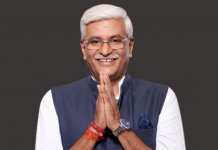ES. Please take us through your professional journey. What have been the major milestones and key accomplishments that you made during your glorious career?
Leighton. I began life as an exercise scientist obsessed with all things sport, particularly Cricket and Australian Rules Football. I become more interested in business and following the completion of an MBA was appointed CEO of Melbourne Major Events Company, a State Government instrumentality that brought major sporting events to Melbourne. Events I was successful in luring were the 1997 Bledisloe Cup Aust v NZ (91,000 at MCG), 1997 World Cup Soccer Qualifier (85,000 at MCG) and 2002 World Masters Games (25,000 participants). I subsequently became CEO of the 2006 Commonwealth Games Bid and then CEO of the Games themselves.
I was then CEO of Sport Knowledge Australia, a Federal Government funded initiative that sought to export Australian sporting knowhow. During this period I did business with the Indian Sports Authority and the Indian School of Business in Hyderabad and visited magnificent India on half a dozen occasions. I then became Chief Operating Officer for Melbourne Convention and Exhibition Centre, a position I have held for over 10 years.

ES. Can you explain how you made the decision to retire from the industry? In retrospect, what have been some of your most cherished memories over the years?
Leighton. 10 years is a long time in a senior leadership role at one organisation. As MCEC resets following COVID it will benefit from new ideas and new leadership, it is a new phase in its history. Also, I had a serious illness in 2020 and just felt I needed to be a little selfish with my time. My great memories of MCEC are the people and culture. We genuinely care for each other and our performance. That gives me great pride for it wasn’t always that way. From an event perspective the 2014 World AIDS Congress was the pinnacle. 14,500 people attended, including President Bill Clinton and Bob Geldorf, from all over the world. The Malaysian flight shot down over the Ukraine had six passengers bound for the Congress, including a past President of the World AIDS Foundation. We put 500 of our employees through an AIDS education program prior to the event and we were able to speak with AIDS sufferers. It was an emotional but ultimately extremely fulfilling week.
ES. What key learnings would you like to handpick out of your experience in the MICE industry?
Leighton. Customers want their event to be different than last year and different to every event around them, each time it needs to be unique. The venue must provide the technical and structural canvas and people capability to allow the customer to create whatever they want. We need to help them to make the magic happen. Our buildings also need to be designed to provide discreet spaces, our customers do not want delegates from other events walking through their space.
ES. You’ve always been an ardent player of the industry, how have you been managing a team of more than 700 employees? Please share some of your key responsibilities as the Chief Operating Officer at MCEC.
Leighton. The Chief Operating Officer is ultimately responsible for two things – productivity and customer satisfaction. What allows you to sleep at night while a 90,000sqm complex is buzzing with dinner guests, theatre events, fork lifts and rigging operators is your culture – knowing that your employees care about each other and their performance. Someone told me once that ‘culture is what happens when you’re not there’.
ES. Under your leadership, MCEC has achieved a record revenue and customer satisfaction results, what were the key points that you have practiced in your operating style to earn the loyalty of your customers?
Leighton. We focus on employee satisfaction and capability as well as customer satisfaction. If we get those two right, the record revenue will follow. We built up to 92% return customer rate through empowering our employees, if there’s a problem they are empowered to fix it up to a cost of $1,000 (I learnt this from Ritz Carlton and it works). No employee has ever abused this power and many customers have provided glowing testimonials regarding our customer service on the back of it. Our employees become stars. We have also worked hard on our employee experience, to the point that we’ve been awarded Employer of Choice three years running.
ES. With the objective of providing major impetus to safety, how have you equipped to ensure safe and secure events in the new normal?
Leighton. We have embraced all government regulations, committing additional resources to ensure full compliance. Very early on we decided we did not want our venue to be the source of an outbreak, both for the community’s sake but also for the sake our reputation, which we have taken many years to build. We reduced our entry points for many months, forcing everyone through thermal sensors and to fill out the government’s screening questionnaire. We have increased our sanitation regime and many employees now work from home, allowing them to avoid high risk public transport options.
ES. Sustainability which is an important reminder to teach us how we might live in harmony with the natural world around us, your passion about sustainability has driven a significant reduction in MCEC’s environmental footprint. Could you please elaborate your take on this critical issue?
Leighton. Sustainability has been a passion of mine, with three daughters I felt a responsibility to do my bit and with such a large venue I can indeed make a difference. Events are regarded as second only to the construction industry with regard to producing waste. We can at sustainability from two ends of the spectrum. Firstly, we looked at what infrastructure investments could be made to reduce our carbon emissions. With the assistance of our owner, the Victorian State Government, we replaced aging high emitting chillers, installed an Energy Management System and implemented CO2 sensors to control variable speed drives so that conditioning of space only occurred on an ‘as needs’ basis. At the other end of the spectrum we educated and encouraged our employees to do what they can. So many great initiatives have come from this area, including reducing our plastic water bottle consumption by 500,000 bottles per annum.
ES. What according to you will be the role of venues and the preparations they will need to thrive in the new normal?
Leighton. I believe venues need to form partnerships with entrepreneurs and promoters, accepting shared risk they haven’t previously. I also believe they need to work hard on creating social capital for their local communities. With international borders closed for some time yet, venues won’t be in a position to drive the levels of economic impact they have previously. As largely State owned assets, they therefore need to provide value of other kinds.

ES. As the current President of the Venue Management Association of Asia Pacific, we would like to know about your upcoming plans and your key role played in promoting the venue management industry as a whole.
Leighton. I am staying on as President of VMA for two more years, during which time we are looking to exploit existing strengths of education, knowledge sharing and networking while also looking to explore additional areas, previously untapped by the association. Our planning is currently underway on our 2025 Strategic Plan but will be released over coming months.
ES. How is the MICE industry poised to evolve in the new normal?
Leighton. Necessarily the MICE industry will more regionalised and localised in the short term, with hotels and convention centres fighting for market share. I do think those venues that provide an experiential offering will have a competitive advantage over others. Currently, the LUME is being constructed at MCEC, an amazing audio visual experience, the likes of which has never been seen. It will open in August with a tribute to Van Gogh.
ES. What according to you will be the key trends that will shape the future of our industry?
Leighton. I believe that venues will need to have design and operational sustainability credentials to be successful. I always say that not all of our customers are interested in sustainability, but the most sophisticated and the biggest are. Again, the experiential element will come to the fore, customers will not be attracted to standalone centres with little to offer other than a meeting or exhibition space. Investment in technology will become even more important as hybrid meetings become a standard offering. Finally, your people will always be an important differentiator and culture an enormous competitive advantage, as it takes 5-10 years to build a great culture and so is difficult to replicate.
ES. Is there a happiness mantra or motto that you’ve found to be very helpful? What do you do to keep yourself motivated at this moment of time?
Leighton. My happiness mantra is to find something that gives you joy and work in that space. Glowing customer feedback provides me with joy, it fills me with pride in my team, who I know are committed to great customer outcomes. Seeing my people grow and develop gives me joy. Knowing that my people know that I care about them is wholly satisfying and goes a long way to building the culture you need to succeed in hospitality.
ES. What would be your message to the industry?
Leighton. Our industry needs to be successful financially, of that there is no doubt. But that is not enough. We need to be a contributor to strong societal outcomes, be that employment, sustainability, mental health, gender equality and so on. Find something that you can do to the benefit of others and get your team on board in pursuit of this goal. That is the basis of a united group and a strong culture.














